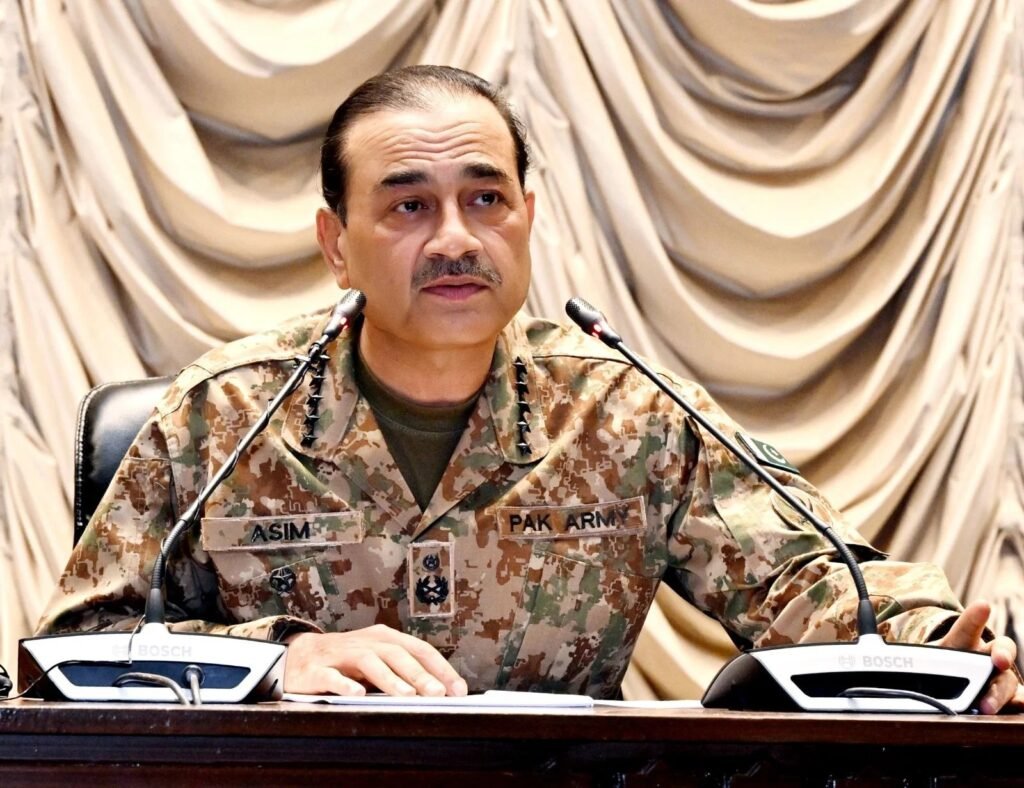In a sharp rebuke to rising tensions in South Asia, Pakistan’s Chief of Army Staff (COAS), General Asim Munir, recently cautioned that India has failed to recognise the potentially catastrophic consequences of its provocations against Pakistan. This strong statement comes amidst heightened military posturing along the Line of Control (LoC) and renewed diplomatic friction between the two nuclear-armed neighbours.
Addressing the ongoing volatility, General Munir warned that India’s actions—particularly its cross-border violations and incendiary rhetoric—are destabilising an already fragile regional balance. “India’s aggressive posture and irresponsible behaviour are a direct threat to peace and stability in South Asia,” he said during a visit to forward military posts near the LoC. “It seems they are oblivious to the catastrophic consequences that could unfold as a result of their provocations.”
Rising Tensions Across the Border
The Pakistani military has accused India of engaging in unprovoked ceasefire violations, which have endangered civilian populations living near the border. While both countries agreed to a ceasefire in February 2021, sporadic incidents have continued to flare, each side blaming the other for initiating hostilities.
General Munir’s statement comes on the heels of recent Indian military exercises near Pakistan’s borders, which Islamabad views as provocative and destabilising. These exercises have been interpreted as strategic messaging by New Delhi—especially following Indian defense officials’ assertions that India is prepared to “strike first” if deemed necessary.
Pakistan’s military leadership, however, sees such statements as reckless. “In a nuclearized environment, even a miscalculated move can spiral out of control,” warned a senior Pakistani official. General Munir echoed this concern, emphasising that Pakistan’s armed forces are “fully prepared” to respond decisively to any form of aggression.
Historical Grievances Reignite
Kashmir remains the core of the geopolitical rivalry between the two nations. Tensions reignited after India revoked Article 370 of its constitution in August 2019, stripping Jammu and Kashmir of its special autonomous status. Pakistan vehemently opposed the move and has since launched a diplomatic campaign to internationalise the issue, which India maintains is an internal matter.
The Pakistani military sees India’s ongoing efforts in Kashmir—including demographic changes, curfews, and military deployments—as a violation of international laws and United Nations resolutions. General Munir has frequently reiterated that peace in South Asia is inextricably linked to the resolution of the Kashmir conflict. “Without a fair and just solution to Kashmir, peace will remain elusive,” he said.
International Concerns Over Escalation
The international community has increasingly expressed concern over the possibility of a military confrontation between India and Pakistan, particularly given their nuclear capabilities. Global think tanks and watchdogs have repeatedly warned that a limited conflict could rapidly escalate into a full-blown war with dire humanitarian consequences.
In 2022, a misfired Indian missile landed inside Pakistani territory, narrowly avoiding a catastrophic incident. The event highlighted just how close the region has come to unintended escalation—and the importance of robust communication mechanisms between the two countries. The Pakistani military cited this example again in recent statements as a cautionary tale of how miscalculations could lead to tragedy.
Strategic Messaging or Genuine Warning?
Some analysts view General Munir’s remarks as part of a broader strategy to project strength and deter Indian aggression. By highlighting Pakistan’s readiness and warning of “unimaginable consequences,” the military leadership aims to reinforce deterrence and maintain a balance of power.
Others argue that the statement reflects genuine concern over India’s increasingly assertive posture. India’s growing strategic partnership with Western powers, its emphasis on defence modernisation, and its hardened stance on Kashmir have all contributed to Pakistan’s sense of urgency in addressing what it sees as an evolving security threat.
Call for Dialogue Remains Open
Despite the harsh rhetoric, Pakistan has continued to signal that it remains open to peaceful dialogue—provided the conversation is “serious and purposeful.” Islamabad maintains that the resolution of outstanding issues, particularly Kashmir, must be at the heart of any negotiations.
“The road to lasting peace runs through justice and dialogue,” said General Munir. “Pakistan does not seek war, but we will not shy away from defending our sovereignty and territorial integrity.”
Conclusion
General Asim Munir’s recent statement is a stark reminder of how delicate the India-Pakistan relationship remains. With two heavily armed militaries, deep-rooted political grievances, and nuclear weapons in play, even minor provocations can have disproportionately dangerous consequences. The onus now lies on both nations—and the broader international community—to ensure that restraint, dialogue, and diplomacy take precedence over escalation and confrontation.
Reference: بھارت پاکستان کےخلاف اشتعال انگیزی سے ممکنہ تباہ کن نتائج کا ادراک کرنے میں ناکام رہا،آرمی چیف







